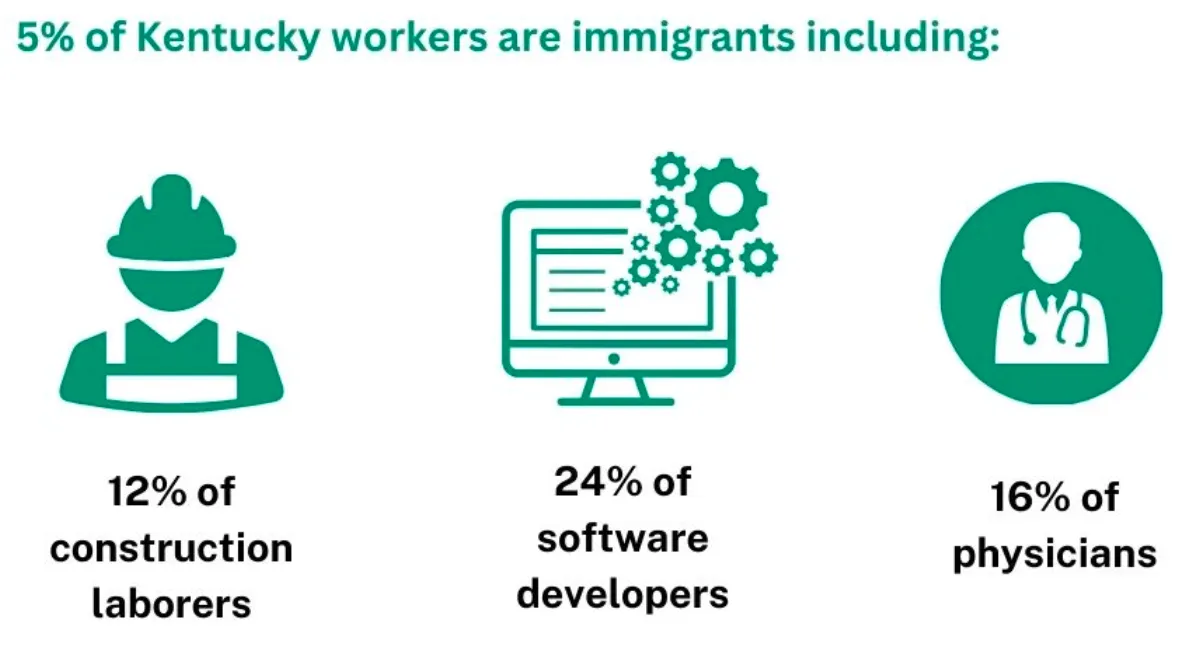Table of Contents
Cross-posted with permission from ProPublica
Mylissa Farmer knew her fetus was dying inside of her. Her water broke less than 18 weeks into her pregnancy last August, and she was desperate for an abortion.
But according to federal documents, during three emergency room visits over two days in Missouri and Kansas, doctors repeatedly gave Farmer the same chilling message: Though there was virtually no chance her fetus would survive and the pregnancy was putting her at high risk for life-threatening complications, there was nothing they could do for her.
In the 11 months since the Supreme Court overturned Roe vs. Wade, similar stories have been reported in the 14 states where abortion bans have gone into effect. In Texas, five women are suing the state for denial of care, including one who went into septic shock and almost died.
Now, the Biden administration is employing one of the few tactics it has available to try to hold hospitals accountable for denying pregnant patients abortion care for high-risk conditions.
A federal investigation begins
In April, a first-of-its-kind federal investigation found two hospitals involved in Farmer’s care were violating a federal law that requires hospitals to treat patients in emergency situations. If the hospitals do not demonstrate they can provide appropriate care to patients in Farmer’s situation, they stand to lose future access to crucial Medicare and Medicaid funding. Physicians who fail to treat patients like Farmer could incur fines, and patients may be able to sue for monetary damages, Farmer’s attorney, Alison Tanner, said.
The investigation, conducted by the Centers for Medicare and Medicaid Services, documented that both Freeman Health System in Joplin, Missouri and the University of Kansas Health System breached their internal policies for complying with the Emergency Medical Treatment and Labor Act, and that their protocols continue to place patients in “immediate jeopardy” of serious health risks, the highest level of violation.
Investigators concluded that future patients in similar situations could face “serious injury, harm, impairment or death.” The hospitals will remain under investigation while they come up with plans to ensure that patients in need of emergency abortion care are not turned away, federal officials said.
A “statement of deficiencies” from the investigation contains summaries of interviews with doctors, nurses and a risk manager involved in Farmer’s care. They reveal the extent to which health care providers went against their own medical judgment to comply with new state laws or political pressure. They also provide an on-the-ground view of how strict state abortion bans have altered care for patients with high-stakes pregnancy complications.
The agency did not disclose whether it is pursuing other investigations related to abortion denials. A spokesperson declined to share the number of complaints the agency has received related to denials of abortion care.
Health and Human Services Secretary Xavier Becerra has sent letters to all hospitals that participate in Medicare, warning them that federal law supersedes state abortion bans. The Department of Justice has also sued and won a case in an Idaho federal district court, arguing the state’s abortion law violates the Emergency Medical Treatment and Labor Act.
EMTALA vs state law
But experts say such efforts do not resolve the conflict. Last year, a Texas federal district court granted a preliminary injunction blocking Becerra’s guidance, siding with the Texas attorney general’s arguments that EMTALA does not cover abortions intended to prevent an emergency.
The court found “EMTALA creates obligations to stabilize both a pregnant woman and her unborn child, and it fails to resolve the tension when those duties conflict.”
Texas law, the court pointed out, allows abortion only in cases “when the medical condition is life-threatening” and the patient’s condition “pose[s] a serious risk of substantial impairment of a major bodily function.”
That’s a narrower range of circumstances than described in the federal government’s EMTALA guidance, which calls for offering abortion care “when the health of the pregnant woman is in serious jeopardy” or when her condition “could … result in a serious impairment or dysfunction of bodily functions or any bodily organ,” the court found. (The judge added italics for emphasis.)
“In addition to requiring a physical threat to life, [Texas law] requires both a greater likelihood and a greater severity than the Guidance’s interpretation of EMTALA does,” the judge wrote. As a result, EMTALA could not compel hospitals to offer abortions that would not be permitted under state law, the judge wrote.
Both cases are under appeal and may eventually make their way to the Supreme Court. In any case, it’s unclear how much impact federal enforcement can have. Though the hospitals who denied Farmer care have been reprimanded, neither has faced sanctions so far.
In a case where providing an abortion would violate state law and failing to provide one would violate federal law, doctors face a lopsided set of potential legal repercussions, said Mary Ziegler, a leading historian of the U.S. abortion debate. The possible penalties for violating EMTALA include fines. The consequences for violating state abortion bans could include prison time and loss of license.
“If [hospitals] interpret EMTALA in keeping with the Biden administration’s understanding of it, they could expose themselves to potentially very serious criminal charges,” Ziegler said. “The incentive structure will be that doctors don’t want to risk legal liability.”
The story of Mylissa Farmer
Farmer, whose story was first reported by the Springfield News-Leader, was considered a high-risk patient from the beginning of her pregnancy, according to her doctors. She was 41, had a history of blood clots, an irregular heart beat, polycystic ovary syndrome, past abdominal surgeries and a past miscarriage.
She was nearly 18 weeks pregnant on Aug. 2, 2022, when she felt liquid gush from her vagina and began cramping and bleeding, according to the investigation.
Doctors at Freeman Health System, a Level II trauma center, quickly determined she had suffered previable prelabor rupture of membranes, known as PPROM — her water broke too early and she had lost her amniotic fluid.
PPROM occurs in about 3% of pregnancies. When it happens before viability, which is generally agreed to start at about 23 or 24 weeks, the chances of the fetus’s survival are extremely low because their lungs cannot develop without amniotic fluid. The chances of the pregnant patient developing a life-threatening infection are high.
Farmer, whose story was first reported by the Springfield News-Leader, was considered a high-risk patient from the beginning of her pregnancy, according to her doctors. She was 41, had a history of blood clots, an irregular heart beat, polycystic ovary syndrome, past abdominal surgeries and a past miscarriage.
She was nearly 18 weeks pregnant on Aug. 2, 2022, when she felt liquid gush from her vagina and began cramping and bleeding, according to the investigation.
Doctors at Freeman Health System, a Level II trauma center, quickly determined she had suffered previable prelabor rupture of membranes, known as PPROM — her water broke too early and she had lost her amniotic fluid.
PPROM occurs in about 3% of pregnancies. When it happens before viability, which is generally agreed to start at about 23 or 24 weeks, the chances of the fetus’s survival are extremely low because their lungs cannot develop without amniotic fluid. The chances of the pregnant patient developing a life-threatening infection are high.
The American College of Obstetricians and Gynecologists says the standard of care in these cases is to counsel patients on the risks and offer a choice between expectant management — waiting for the miscarriage to complete on its own or the patient to become sicker — or immediate delivery, by inducing labor or performing a dilation and evacuation surgery.
Being forced to wait can have dire outcomes. In Ireland, a woman with PPROM died from sepsis in 2012 after doctors refused her abortion care, prompting public outrage that eventually led abortion to be legalized in that country.
Anti-abortion activists say that state abortion bans include medical exceptions to allow abortions to protect the “life of the mother.” But in most laws, the exceptions are written so broadly they can be interpreted to only cover the most urgent emergencies, and doctors could face stiff penalties for violating the law — up to life in prison in Texas, for example. According to media reports, few patients have been able to access abortions under those exceptions.
PPROM cases where the fetus still has cardiac activity are particularly difficult for hospitals to navigate under the laws, because a patient’s health status can change from stable to life-threatening extremely quickly, said Dr. Chloe Zera, a maternal-fetal medicine specialist in Massachusetts. The laws do not clarify whether physicians can act to prevent an imminent health emergency instead of waiting for one to develop.
“There are [PPROM] cases that do OK. And there are cases where there is overwhelming infection or hemorrhage, or hysterectomy or ICU admission or death. And things can turn really fast,” Zera said. “We just don’t have great ways to predict who’s going to get sick.”
When a patient has PPROM at 18 weeks, she advises ending the pregnancy because the risks to the patient’s health outweigh the chances of the fetus reaching viability. If Farmer had walked into her hospital in Boston, where abortion access has been expanded since Roe was overturned, Zera said Farmer would have been able to have the procedure right away if she wanted.
That’s not what happened in Missouri or Kansas.
The Missouri hospital
According to records, Farmer’s OB-GYN at Freeman Health System and a maternal-fetal medicine specialist described in detail the severe risks Farmer faced if she continued the pregnancy: clotting, sepsis, severe blood loss, loss of her uterus and death. At the doctors’ request, ProPublica is not naming them after they expressed concerns for their safety.
The maternal-fetal medicine specialist explained to Farmer that typical treatment options usually include abortion care, according to the documents. But when Farmer requested that labor be induced, the specialist told her it was not possible in Missouri.
“We discussed that the current Missouri law (188.015.7 RSMo) supersedes our medical judgement, and the MO law language states that we cannot intervene in the setting of a pregnancy with positive fetal heart motion unless there is a ‘medical emergency,’” the specialist wrote in Farmer’s charts, according to the investigation. “She is currently medically stable. … Therefore contrary to the most appropriate management based my medical opinion, due to the legal language of MO law, we are unable to offer induction of labor at this time.”
Missouri’s abortion ban is one of the strictest in the country. It bans all abortions, except those that are necessary to save a pregnant patient’s life. Even in those cases, doctors could still be charged with a crime. The exception is allowed as an affirmative defense, which puts the burden of proof on the doctor to show the abortion was necessary — similar to claiming self-defense in a homicide case.
The maternal-fetal medicine specialist told Farmer she could travel to another state for care or stay at the hospital for observation. “We discussed that awaiting a medical emergency may put her at further risk for maternal mortality,” the documents say. The specialist and the OB-GYN declined to comment, and the hospital’s media department did not respond to calls and text messages.
On to Kansas
According to a complaint filed on Farmer’s behalf by the National Women’s Law Center, she called multiple hospitals, including two in Illinois and two in Kansas, both states where abortion is legal. She couldn’t get through to some of them. Other hospitals said they were not big enough to provide the care she needed or could only handle miscarriages later in pregnancy. She tried two abortion clinics, but could not reach anyone there. Finally, one hospital recommended she go to the University of Kansas Health System, in Kansas City, Kansas, which has the largest out-of-state emergency room nearest to Farmer. She and her boyfriend drove nearly three hours.
In interviews with federal investigators, Farmer said that when she first arrived at the University of Kansas at 11:35 p.m., doctors confirmed she had no amniotic fluid left and discussed either inducing labor or providing a dilation and evacuation procedure. Farmer preferred to induce labor so she could hold her daughter, who she had named Maeve, but she told the doctors she would choose “whatever option to save my life.” An OB-GYN resident suggested that inducing labor would be easier to get past the hospital’s legal team, according to the documents. ProPublica is not naming the resident because the hospital expressed concerns for the person’s safety.
The resident returned and said: “Unfortunately, due to the political climate, it was too hot and heated right now,” Farmer told investigators. Earlier that same day, Kansans had voted on whether to protect their state’s constitutional right to abortion. To the hospital’s legal team, both procedures “resembled an abortion and it was too risky,” Farmer recalled the resident saying.
At the University of Kansas Health System, investigators spoke to a nurse, an OB-GYN resident and a maternal-fetal medicine specialist involved in Farmer’s care, as well as the chair of the OB-GYN department and a risk management coordinator. They all corroborated Farmer’s account and said they believed they were not allowed to provide an abortion until Farmer’s symptoms progressed or fetal cardiac activity ceased.
Unlike Missouri, Kansas does not have a sweeping abortion ban. Abortion remains legal up to 20 weeks, and on the day Farmer arrived at the hospital there, Kansans overwhelmingly voted to keep abortion rights in their state constitution.
But Republican lawmakers, guided by national anti-abortion groups, have worked for decades to chip away at abortion access in other ways. The hospital referred investigators to a statute from 1998 that specifically prohibits doctors at the University of Kansas from providing abortions except for in emergency situations.
Yet the statement of deficiencies points out that the University of Kansas Health System also has specific policies to advise physicians in emergencies, including guidance on how to care for patients with prelabor rupture of membranes.
That guidance warns that, after a patient’s water breaks, the risk of complications, including infections, hemorrhage, oxygen deprivation and death, increase with time. For PPROM before 23 or 24 weeks, it directs physicians to offer immediate delivery as an option and to make the decision taking into account “the patient’s wishes.”
And the hospital’s EMTALA policy states that the definition of an emergency medical condition is broad and is not limited to patients with traditional “urgent” conditions: “The phrase ‘immediate medical attention’ has been applied to situations in which the need for medical assessment and care was in a time frame of days rather than hours.”
Investigators also documented that less than two months earlier, a 40-year-old woman came to the same emergency room when her water broke at 15 weeks and received an abortion.
She was counseled on the same risks as Farmer. Her fetus still had cardiac activity and her condition had not yet progressed to an emergency. In fact, her condition was slightly more stable than Farmer’s: She was not yet bleeding and still had some amniotic fluid left. Yet the patient was offered and received abortion care.
Under EMTALA, the hospital had a duty to transfer her to another facility if it could not provide care. Nothing in Kansas law would have prevented the hospital from transferring her to another hospital that could provide abortion care.
But Farmer, the documents make clear, was not given any of those options. The investigation found that the doctors did not even take Farmer’s temperature or conduct a pain assessment, steps that are required under the hospital’s triage policies and a critical tool in evaluating whether her condition was worsening.
The doctors on the medical team, Farmer told investigators, “were very clear about making sure that she knew she had a very serious situation and that she needed care” but only advised her to monitor her symptoms and told her to go back to her hospital in Missouri to deal with further concerns.
Farmer felt “pretty much abandoned at that point, that there was nothing they could do, and that [she and her boyfriend] were on their own,” she told investigators. She worried about the cost of an abortion at an abortion clinic.
At 1:30 am, she was discharged.
(Investigators also cited the hospital for a separate case: A 73-year-old man who arrived at the hospital’s emergency room in September and had an abnormal electrocardiogram was left in the waiting room for nearly 90 minutes without a medical screening examination, until staff realized he had died.)
ProPublica sent the University of Kansas Health System detailed questions about the violations cited in the documents. Jill Chadwick, a spokesperson for the hospital, declined an interview. In a statement about Farmer’s case, Chadwick said: “The care provided to the patient was reviewed by the hospital and found to be in accordance with hospital policy. It met the standard of care based upon the facts known at the time, and complied with all applicable law.”
If Farmer’s treatment complied with hospital policy, the standard of care and the law, ProPublica asked, did that mean providing abortion care two months earlier to another patient with PPROM was a violation?
Chadwick said she could not provide further comment. In a later email, a spokesperson said “physicians can and do provide abortions” at the hospital “if there is an emergent need to save a patient’s life, or to prevent serious and irreversible harm to a patient’s major bodily function.”
Back to Missouri
Farmer returned to Missouri and, later that evening, went back to the emergency room of Freeman Health System for her pain. Again, doctors counseled her on all the risks of continuing her pregnancy. Again, they told her there was nothing they could do until fetal cardiac activity ceased or she got sicker. They gave her Tylenol and anti-anxiety medication.
“The patient’s medical record also indicated that the patient was exhibiting psychological distress associated with the situation and expressed that she perceived financial barriers to seeking further care on an outpatient basis,” investigators wrote. They also found that medical providers did not reexamine Farmer’s cervix to check how quickly she was progressing and whether she might soon go into labor.
According to her complaint, Farmer finally got connected with an abortion clinic in Illinois that agreed to provide the procedure as soon as possible because of the urgency of her condition. In the car on the way there, she began to experience contractions, but did not want to stop at any Missouri hospital for fear of being denied care again. Upon arrival, a physician performed surgery to end the pregnancy.
Because of their travel, both Farmer and her boyfriend missed work. She was docked a week’s pay and he lost his job. Her insurance refused to cover her care at the abortion clinic, according to her complaint. Afterward, she continued to experience pain and doctors told her she had likely developed an infection during the ordeal. Farmer has since had a tubal ligation to ensure she can never get pregnant again, and she has shared her story with multiple media outlets, alerting federal officials and others to her case and prompting investigations. (She declined through her lawyer to speak with ProPublica because of the trauma of reliving the experience.)
“It was dehumanizing. It was terrifying. It was horrible not to get the care to save your life,” she told The Associated Press. “I felt like I was responsible to do something, to say something, to not have this happen again to another woman. It was bad enough to be so powerless.”
--30--
Written by Kavitha Surana. Cross-posted from ProPublica.







